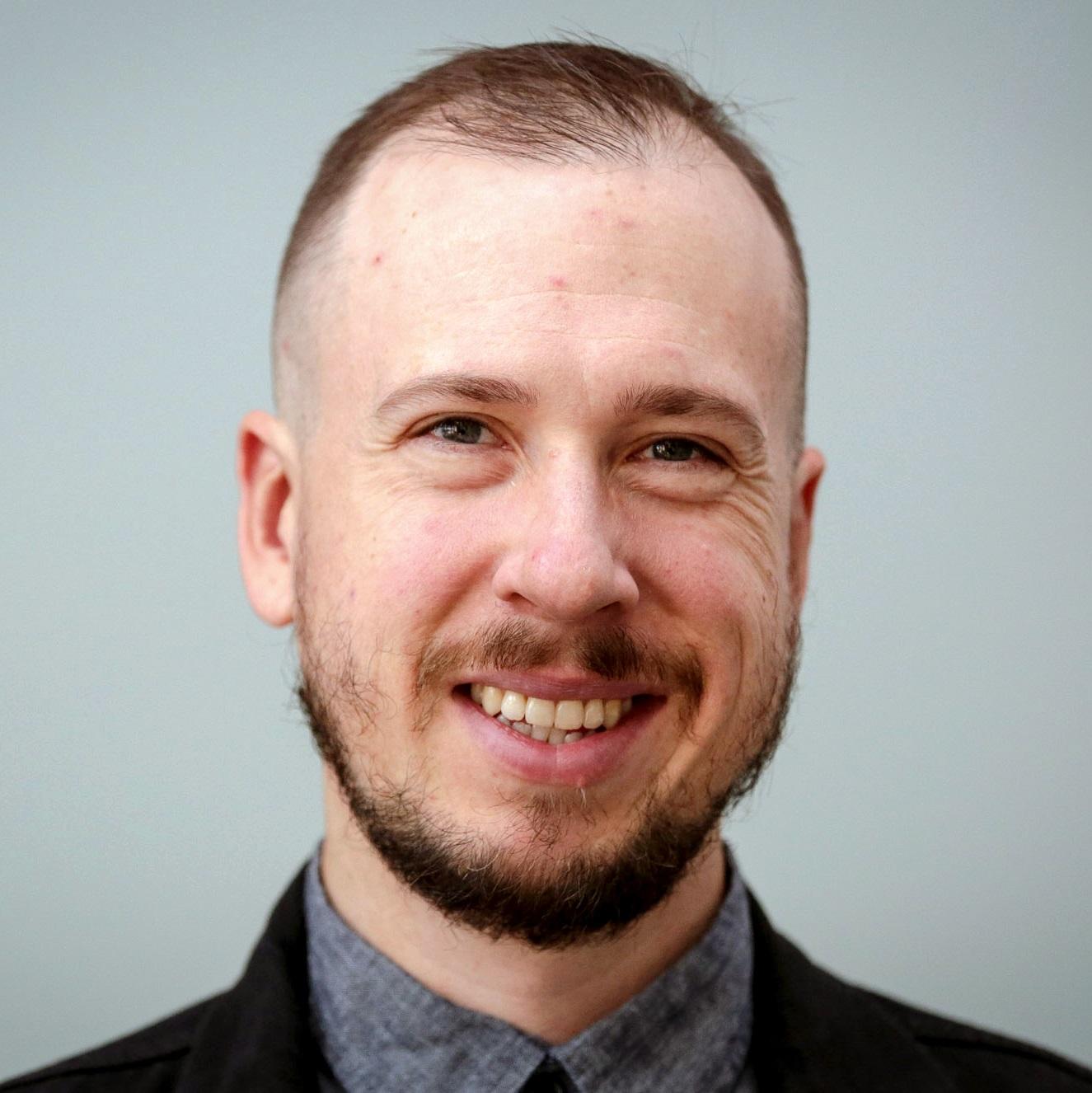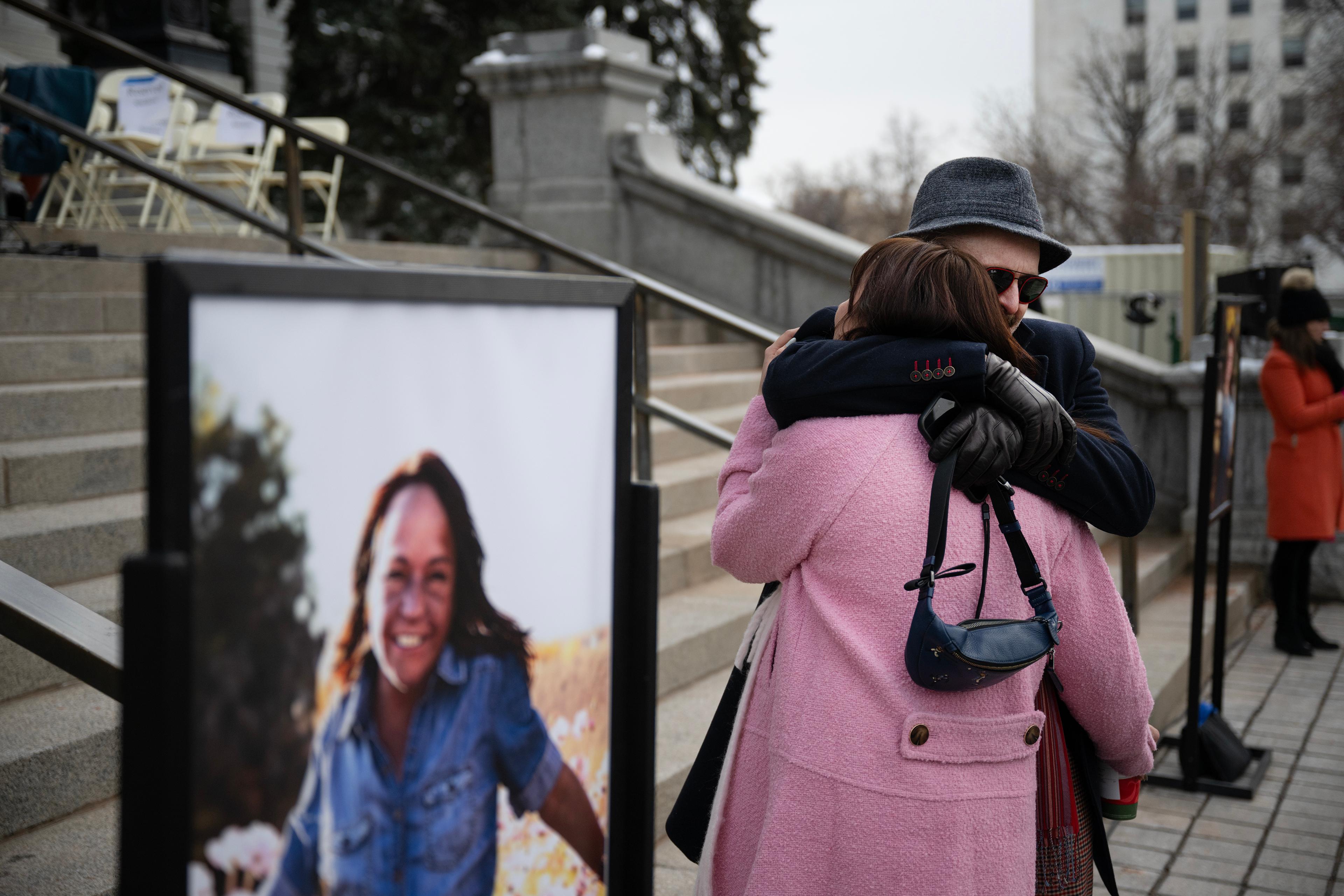
How does a former bible quiz champion raised in an evangelical Pentecostal church find his way into founding a church centered on cannabis?
Well, thanks to Colorado’s wild west frontier of legalized marijuana, there’s someone who can answer that unique question. Lee Molloy, a Brit who arrived in Denver via Miami, is co-founder of the International Church of Cannabis.
The birth of Denver’s latest house of worship will coincide with the annual observance of 4/20, a date now strongly anchored to marijuana culture. The inside of the 113-year-old church on Logan Street bursts with psychedelic murals full of geometric shapes.
“It is pretty much a full spectrum of very bright, vivid color, rainbow like and very inspirational,” Molloy said of the works by Spanish artist Okuda San Miguel that cover the chapel.
“The art is explained through meditation, on the sacrament, and finding your own meaning in it,” he said. “And that’s part of what the Elevationist experience is.”
By “sacrament,” Molloy means using cannabis to have a spiritual experience. And when he says “Elevationists,” that’s what he and more than 30 other members call themselves.
The church houses a religious nonprofit called Elevation Ministries. Its founders have built their lives around cannabis. Molloy, for example, tried marijuana as a teen. But it wasn’t until his mid-20s that he started to indulge consistently. Around that time, Molloy explored Buddhism. Now years later those experiences have given way to the International Church of Cannabis.
The founders’ advocacy included politicking for legal medical marijuana in Florida in 2014. That amendment failed, so they headed to Denver and brought with them their company Bang Digital Media, which promotes cannabis-related businesses. But Molloy said this church, which cost more than $1 million to buy and renovate, isn’t about making profit.
“This is not a money making venture in and of itself. It is genuinely a community project to set up a community church here in Denver.”
At first, organizers hoped to make the church public. Now it’s private after neighbors and city officials raised concerns it was a front for a social pot club. This comes at a time when Colorado lawmakers have been trying to define rules and regulations around social pot use. During floor debate on the legislation — before the decision was made to back off, citing concerns of uncertainty with the Trump administration — Democratic state Rep. Dan Pabon of Denver addressed the church.
“I’ve talked to those folks who regulate these clubs in the city, and I’ve looked at the first amendment and religious exemptions for the same,” he said at the Capitol. “What they’re doing seems patently illegal.”
But the church contends it’s not a social pot club. While the state isn’t pursuing pot club regulations, Denver still is. Voters in November approved public use of marijuana in permitted businesses. Details are still in the works. The International Church of Cannabis agreed to make events invite-only. The city won’t shut down the church as long as events stay private, said Dan Rowland, spokesman for Denver’s Department of Excise and Licenses.
“Marijuana consumption as a sacrament or some sort of religious right does not prohibit the city from enforcing its valid and neutral laws against open and public consumption of marijuana,” he points out.
The church can’t grow, sell or distribute marijuana either, Rowland said.
There are other cannabis churches in Colorado and across the U.S. And the central idea for the International Church of Cannabis isn’t unique, as religions have used different methods to achieve altered states. Fasting comes to mind. For other traditions, Jeffrey Mahan, a professor at Denver’s Iliff School of Theology, said that, “drugs have been a way to bring about that altered state to open one’s self to the spirit.”
Mahan points to peyote use by Native Americans and even churches in the 1960s that used psychedelic drugs like LSD. These days there’s a spiritual hunger that Mahan believes is driven partly by the digital age. He said that makes religious identities, like at Denver’s new cannabis church, more fluid.
“What we see is people taking on religion as more personal projects, and new religious movements,” he said. “And I think you have to think about this as that kind of religious experimentation.”
International Church of Cannabis co-founder Lee Molloy insists this church isn’t just a sanctuary for stoners. It’s about self-discovery.
He is also frustrated by fears that this is a nightclub or a scam. The Elevationists plan to do community service, to be good neighbors and to open their doors to the public for a couple smoke-free hours each afternoon. After all, Molloy said, the purpose of a modern day church centers around community.
Editor's Note: An earlier version of this story said the Iliff School of Theology was associated with the University of Denver, this is incorrect. The story has been updated to note the school is independent. We regret the error.









